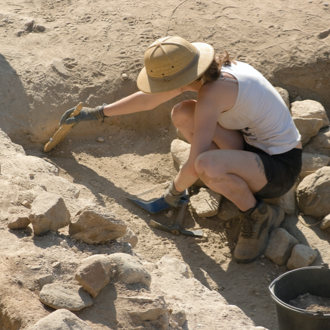
Archaeological Field Projects
The Department of Greek & Roman Studies offers opportunities for undergraduate and graduate students to participate in archaeological digs and fieldwork at Roman, Greek and Indigenous Italic sites. Undergraduate students may enroll in the Field Practicum in Classical Archaeology (GKROMST 4FP3), which is usually carried out during the summer: Undergraduate students may also design an independent study around archaeological material. Graduate students specializing in archaeology are encouraged to participate in field activity and current students have integrated fieldwork data into their theses and dissertations. McMaster faculty are presently affiliated with two archaeological excavations in Italy.
